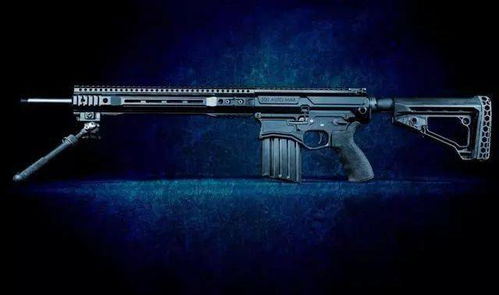Understanding AR-15 Slings: A Comprehensive Guide for Enthusiasts
When it comes to accessorizing your AR-15 rifle, one of the most crucial components you’ll consider is the sling. The AR-15 sling is not just a piece of equipment; it’s an extension of your arm, providing comfort, control, and versatility. In this detailed guide, we’ll delve into the various aspects of AR-15 slings, helping you make an informed decision for your firearm.
Types of AR-15 Slings

There are several types of AR-15 slings available on the market, each designed to cater to different needs and preferences. Here’s a breakdown of the most common types:
| Type | Description |
|---|---|
| Single-Point Sling | Simple and lightweight, a single-point sling attaches to one point on the rifle and allows for quick, one-handed carry. |
| Two-Point Sling | With two attachment points, a two-point sling offers more stability and control, making it ideal for longer-range shooting or when carrying the rifle on your back. |
| Three-Point Sling | Similar to a two-point sling, but with an additional attachment point, a three-point sling provides maximum stability and control, suitable for various shooting positions. |
| Four-Point Sling | With four attachment points, a four-point sling is the most versatile option, allowing for a wide range of carrying positions and configurations. |
Material and Construction

The material and construction of an AR-15 sling play a significant role in its durability, comfort, and overall performance. Here are some key factors to consider:
- Material: Common materials include nylon, leather, and neoprene. Nylon is the most popular choice due to its durability, lightweight, and resistance to weather and wear.
- Webbing: The webbing used in the sling should be strong and flexible, allowing for easy adjustments and comfortable carrying. Look for slings with reinforced stitching and high-quality webbing.
- Hardware: The hardware, including buckles, clips, and D-rings, should be made of sturdy materials like stainless steel or aluminum to ensure longevity and reliability.
Adjustability and Customization

Adjustability is a crucial feature in an AR-15 sling, as it allows you to customize the fit and carry position to your preferences. Here are some factors to consider:
- Length Adjustment: A good sling should offer a wide range of length adjustments to accommodate different body types and carrying positions.
- Attachment Points: Look for slings with multiple attachment points, allowing you to switch between different carry positions and configurations.
- Quick-Release Mechanism: A quick-release mechanism can be a lifesaver in emergency situations, allowing you to quickly detach the sling and access your firearm.
Comfort and Ergonomics
Your AR-15 sling should be comfortable to wear for extended periods, without causing discomfort or fatigue. Here are some tips to ensure a comfortable and ergonomic sling:
- Padding: Look for slings with padding in key areas, such as the shoulder strap and where the sling attaches to the rifle, to reduce pressure and friction.
- Weight Distribution: A well-designed sling should distribute the weight of the rifle evenly, minimizing strain on your shoulders and back.
- Adjustable Straps: Adjustable straps allow you to customize the fit of the sling to your body, ensuring a comfortable and secure carry.
Brand and Reputation
When choosing an AR-15 sling, it’s essential to consider the brand and reputation of the manufacturer. Here are some reputable brands known for producing high-quality slings:
- BlackHawk!
- SpecOps Gear
- 5.11 Tactical





